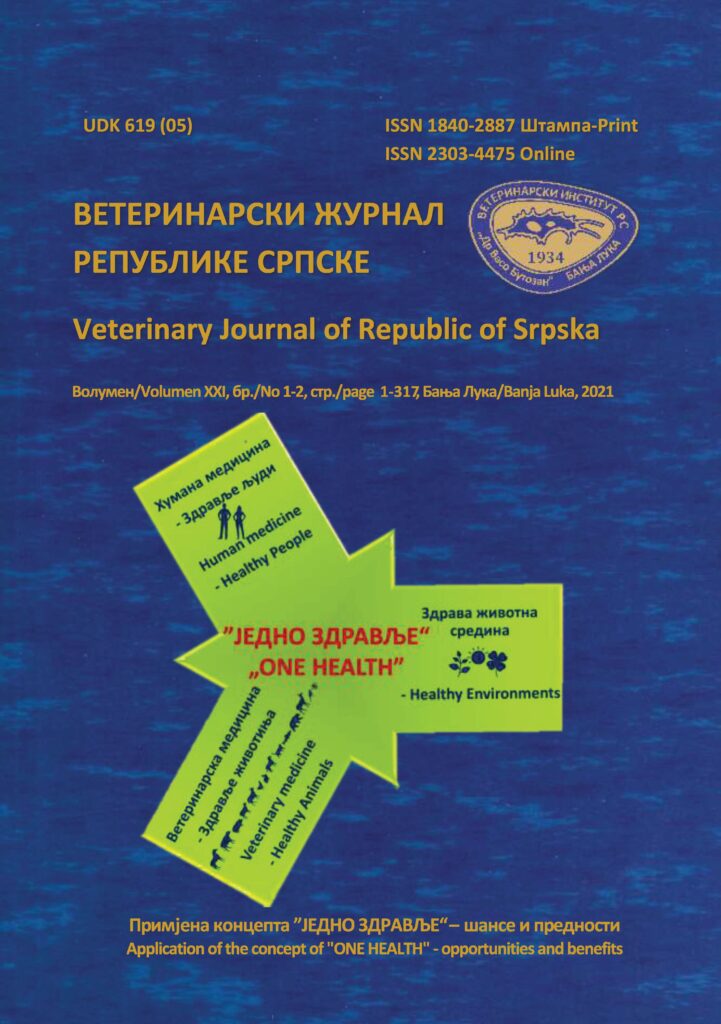EFFECT OF DIETARY PATTERNS ON VITAL SIGNS (PULS RATE, RESPIRATORY RATE, RECTAL TEMPERATURE) AND BLOOD PRESSURE IN DOG POPULATION DURING WINTER PERIOD
DOI:
https://doi.org/10.7251/VETJEN2101217HAbstract
Vital signs (puls rate, respiration rate and rectal temperature) and blood pressure play a major role in a general clinical examination of patients in veterinary medicine, with a final purpose to diagnose disease. The general condition of a dog's organism is affected by a number of factors and each organism has its own defense mechanism against the cause of a disease. Oscillations in body temperature (increased or decreased), number of breaths per minute, heart rate and increased or decreased pulse indicate the body's response to the harmful effects of pathogens. Therefore, these parameters are considered to be the first sign of a disease. The obtained study determined the importance of dietary patterns and living conditions of dogs on vital signs and blood pressure in dogs from the City of Tuzla and Lukavac area, based on the results and monitoring performed in 30 dogs during the winter period from November 2014 to January 2015. Many authors, in their professional and scientific publications, indicate that obesity is a possible contributing factor in the development of the diseases, and consequently "obesity epidemic" is involved as a term. A large number of studies conducted in the world point to the fact that hypertension and tachycardia in the human and increasingly in the animal population is serious health problem and a significant risk for occurrance of heart disease, kidney and blood vessels disorders. Although the cause of most cases is unknown, there are a number of possible influencing factors, including inadequate diet and consequent obesity, which significantly affect the occurrence of disease in humans and animals. The study was conducted on two different groups of dogs (30 in total), as group A (15 dogs) included dogs that were fed with a combination of ready to serve and prepared meals, and group B (15 dogs) included dogs that were irregularly fed and malnourished. The study was conducted in accordance with the data of the World Veterinary Association. During the routine examination, rectal temperature, systolic blood pressure, diastolic blood pressure, pulse rate, respiratory rate, as well as gender, breed, body weight, and age of the dog were used as parameters.

